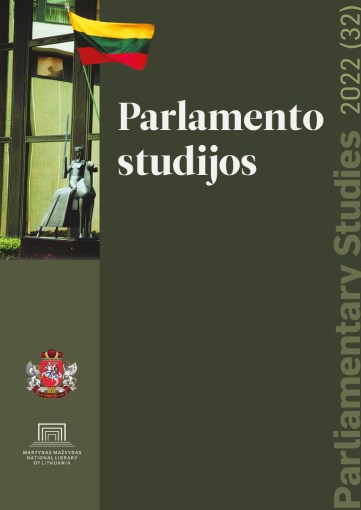Mnemonic Conflicts and Cooperation in Memory Politics: Development of Narratives about Historical Traumas in Lithuania after 1991
DOI:
https://doi.org/10.51740/PS.32.2Keywords:
mnemonic conflict, mnemonic cooperation, historical trauma, deportations, Holocaust, anti-Soviet partisan war, LithuaniaAbstract
This article is focused on the most visible narratives about Lithuania’s trauma experiences—deportations under Stalin, the anti-Soviet partisan war and the Holocaust. These hegemonic traumatic experiences were essential for the processes of Lithuanian statehood since 1991. ‘Separate memories’ about the Soviet crimes, associated with the deportations under Stalin and anti-Soviet partisan war, and the Holocaust, were developed in Lithuania. Even though these memories are associated with separate memory regimes, they intersect and often conflict with each other. How were memory regimes, associated with these hegemonic memories, develop? Which actors affected the development of these regimes in separate trajectories? How did these memory regimes get into conflict, and what were the consequences of these conflicts? Is multidirectional memory, when different traumatic experiences ‘talk’ to each other, possible in Lithuania? The goal of the article is to survey the dominant memory regimes in Lithuania and assess their influence on the development of the Lithuanian statehood. The main research findings highlight the importance of geopolitical developments and international actors for the processes of mnemonic conflicts and mnemonic cooperation locally. In the case of Lithuania, major geopolitical developments coincided with the creation of major trauma narratives. The participation of international actors in the creation of major trauma narratives has resulted in both mnemonic conflicts and mnemonic cooperation.









 The metadata of the scholarly journals and publications of the Lithuanian National Martynas Mažvydas Library is distributed by
The metadata of the scholarly journals and publications of the Lithuanian National Martynas Mažvydas Library is distributed by 